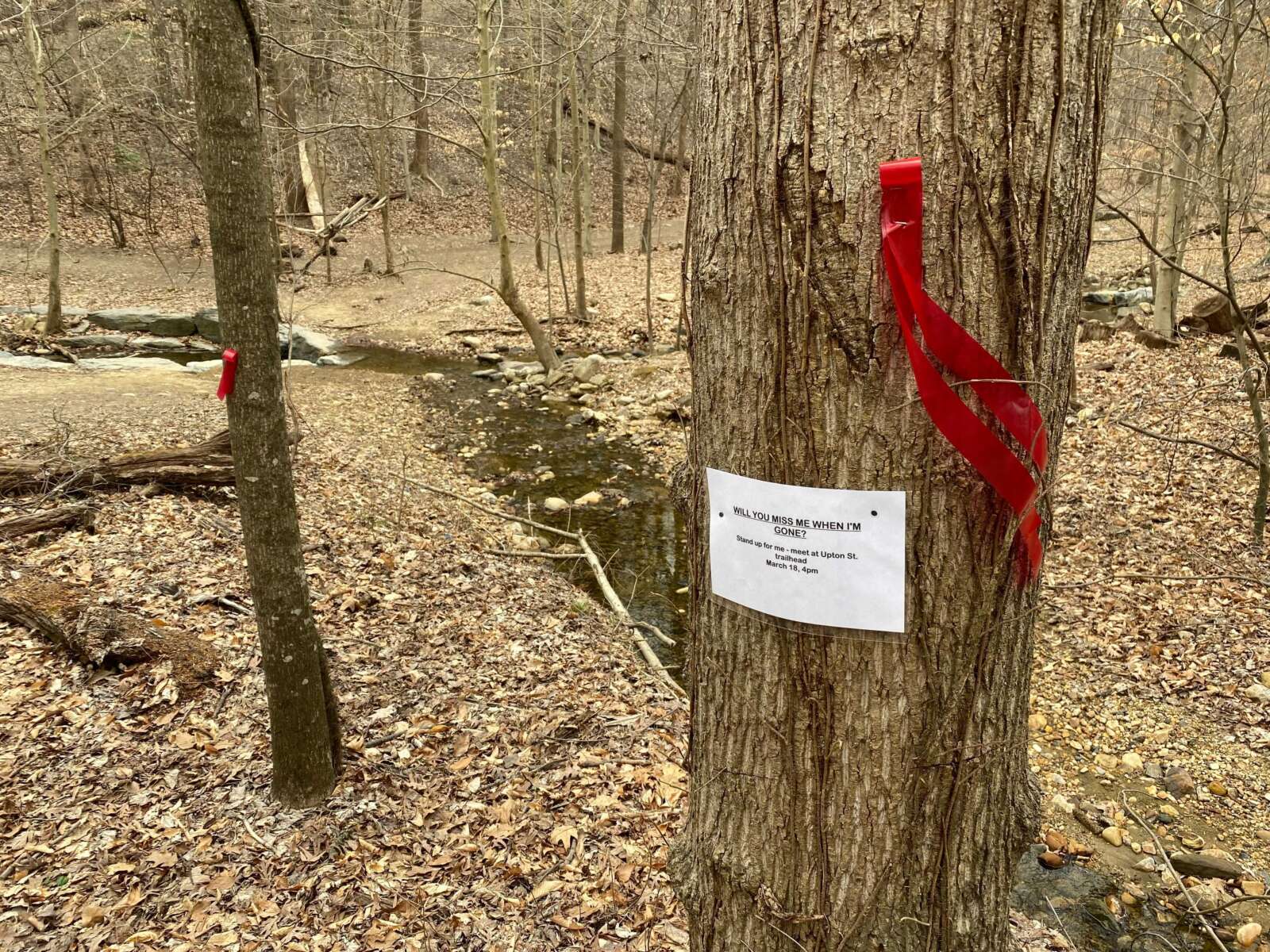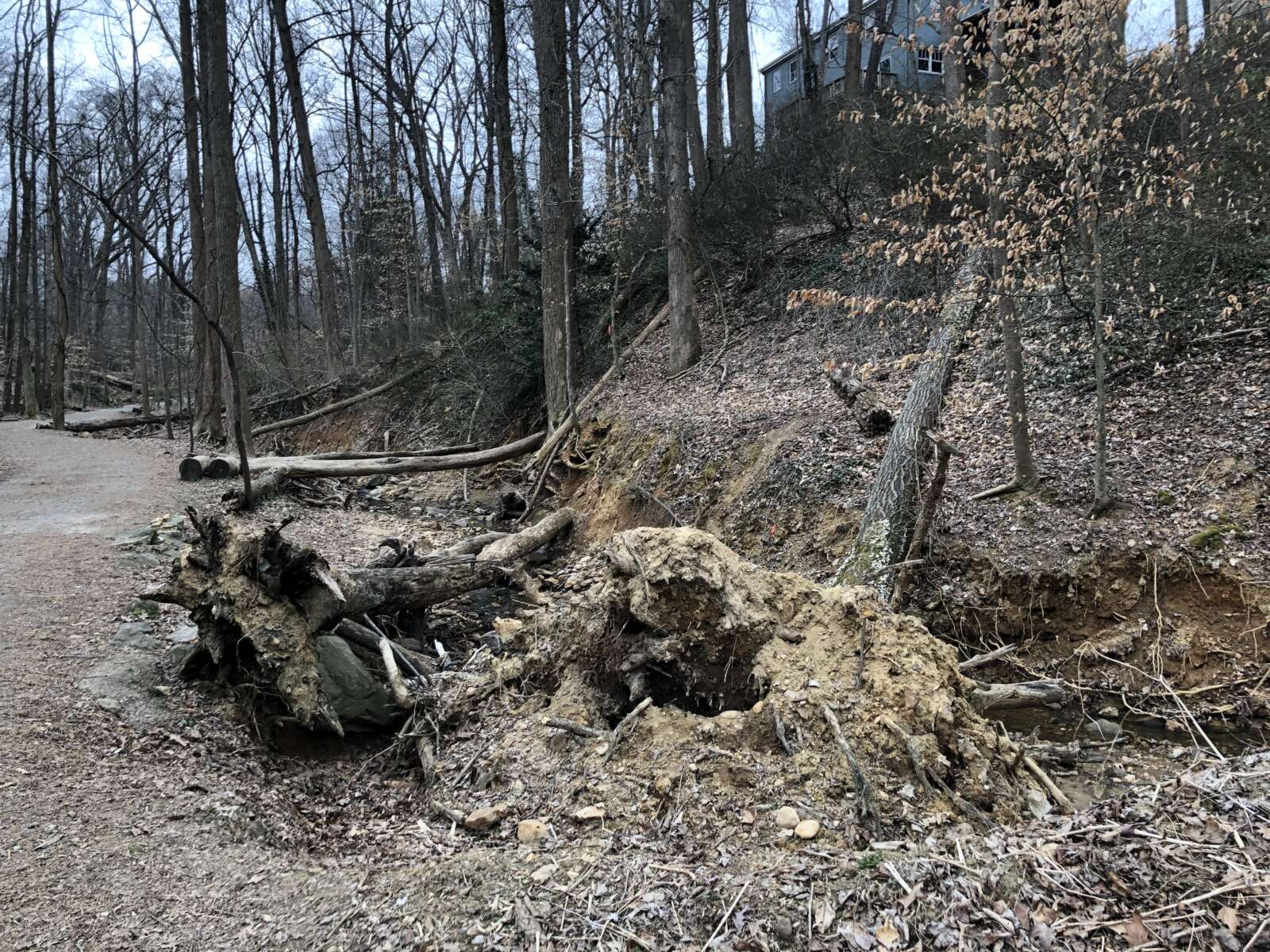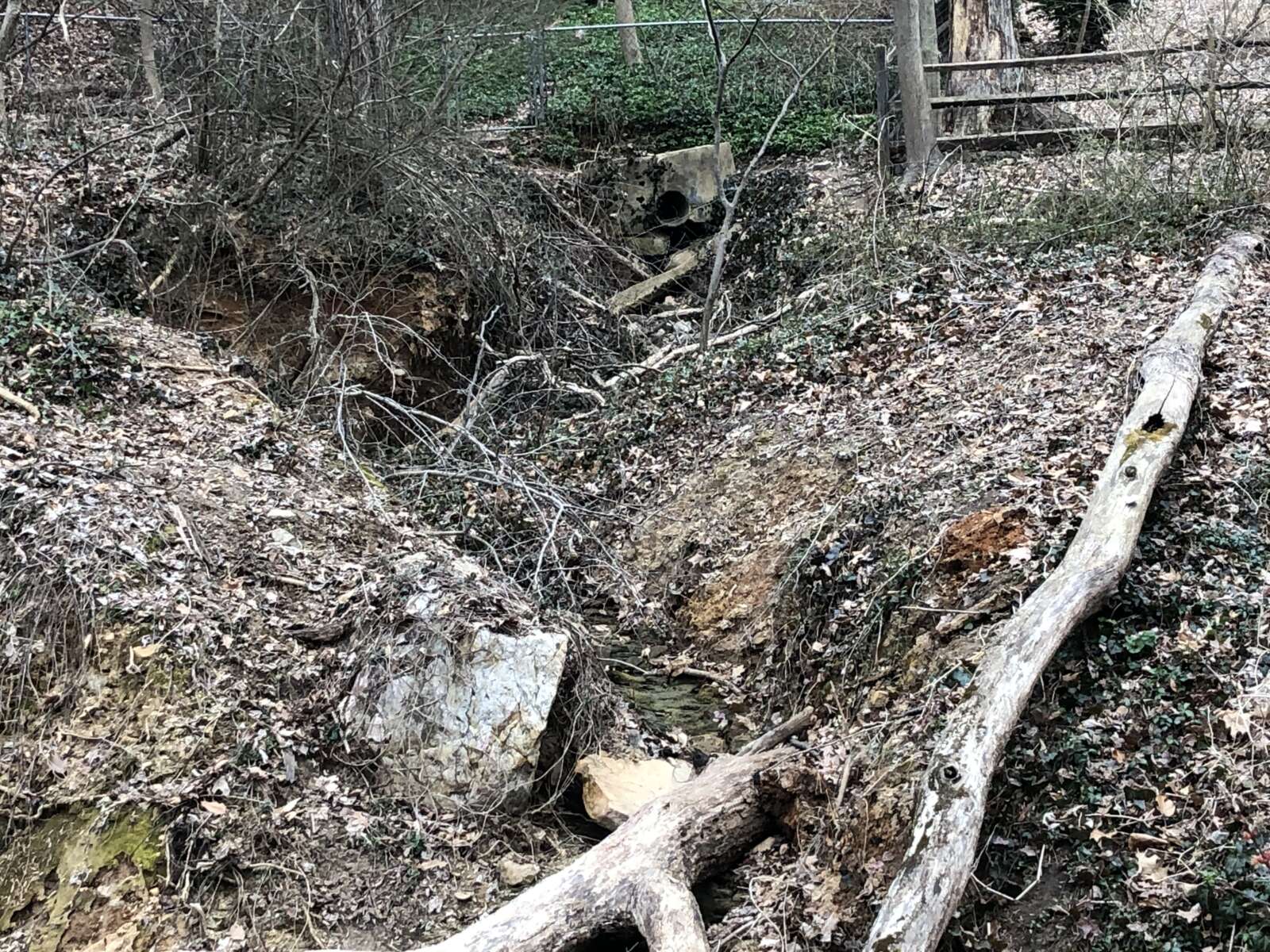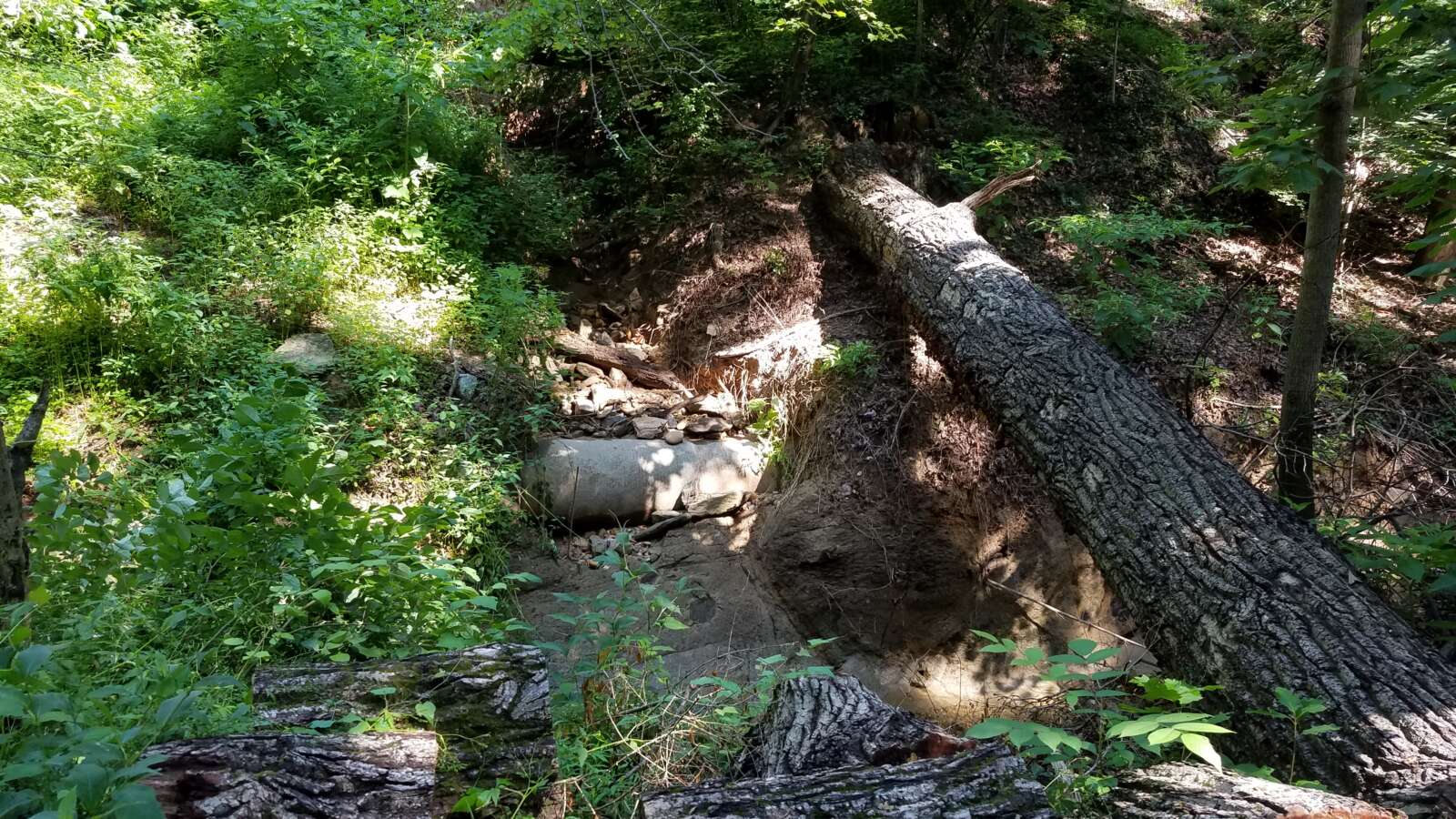The Arlington County Board is slated to review a restoration project for Donaldson Run Tributary B next week.
The Board is scheduled to vote at its Tuesday meeting on whether to award a $1.5 million contract to restore a segment of the stream beginning at N. Upton Street and extending about 1,400 feet downstream to where it meets with Donaldson Run Tributary A in Zachary Taylor Park, according to a county report.
The project will address “critical infrastructure, public safety and environmental threats,” the county said. It “will stabilize the stream’s eroding banks to protect existing stream valley infrastructure, including the threatened water main and sanitary sewer, which crosses the stream and runs parallel to it.”
This restoration project has been in the works since 2004 when the Donaldson Run Civic Association designated it a priority Neighborhood Conservation project, according to a county website. The project received funding in 2007 and the county completed its plans for restoration in February 2020 after a lengthy design and public engagement process.
In the intervening years, erosion and storm damage, including the July 2019 flash flood, have gouged out the banks, uncovering a 30″ water main and sanitary sewer line, which triggered emergency repairs. The two forces have also felled about 20 trees along the tributary since 2017.
This erosion “threatens the Zachary Taylor hike-bike trail and public safety and is undermining streambank trees,” the staff report said. “Sediment eroded from the stream has accumulated downstream, compromising the integrity of a prior stream project, the Donaldson Run Tributary A project completed in 2006.”
According to the county website, the project also aims to help the reduce pollution, protect the multi-use trail and restore native vegetation to the area, described as “overrun” with invasive plants such as kudzu and English ivy.
About 83 trees will be removed during the project. In their place, 332 native trees, 180 shrubs, 200 live stakes — cuttings that will grow into trees — and more than 4,000 herbaceous plants will be planted, a county spokeswoman said.
The county says it will use a technique called “natural stream channel design” to create a new stream channel that can better manage the runoff it receives from the surrounding land.
Some critics, however, oppose the chosen restoration method as well as the resultant tree removal. The Arlington Tree Action Group said the project has not been updated to account for climate change and new sustainability goals. Over the last few years, the group has voiced its opposition to the number of trees that could be axed.
“The County’s plan is to destroy more than 80 old, established trees alongside Tributary B which will lead to even worse flooding,” ATAG said in an email. “These trees will be sacrificed for nothing.”
ATAG will be organizing today (Thursday) at 4 p.m. near the planned construction site to protest the county’s plans.
The project has divided neighbors and local environmentalists into two camps, said Anne Bodine, a member of ATAG.
“Some say anything is better than what is there right now and if there’s another bad rain, it’s going to gouge out the sides more, taking out more trees, as some of them are hanging them by a thread,” she said.
Others, including herself, are asking the county to take a 100-year perspective and update the plan to account for recent technological developments that could make restoration more sustainable and reduce tree loss.
“It’s an argument about technique: What’s the best method? What’s the most effective?” Bodine said. She added that “the best outcome would be to defer this another month” so the county can talk to more local experts.
The county, meanwhile, says its plans are sound and based on established best practices.
“The Tributary B stream restoration approach is affirmed by design professionals, confirmed by peer review, and approved by regulatory agencies,” the county website says.
“I do respect the county’s knowledge,” said Bodine, while adding: “It’s a political decision about how you’re going to do things in Arlington.”








